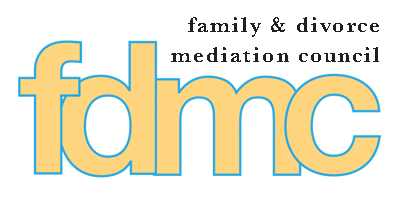Why Mediation?
How Mediation Works
Divorce mediation allows couples to reach their own out-of-court agreement resolving all issues surrounding the end of their marriage: legal and physical custody of their children, spousal and/or child support and equitable division of assets. My role is to facilitate such an agreement through guidance and the proposal of solutions — sometimes those that have proved successful for other couples, and sometimes those tailored to the parties’ particular needs.
Since mediation (unlike binding arbitration) is voluntary, it requires that both parties operate in good faith and be committed to a resolution that is fair to the entire family.
My Mediation Style
My mediation “style” emphasizes flexibility; I try to be sensitive to the needs of each couple. For example, while I do discuss the mediation “process” before turning to the substantive issues, I do not dwell on it if the parties feel it is unnecessary. While I strongly advise that both parties have consulting attorneys at some stage of the mediation (even if only to review a draft settlement agreement from each individual’s perspective at the end of the negotiations), I do not insist upon it. While I do not regularly “caucus” with the parties individually, I am not reluctant to do so if I think it will help.
Although I am happy to advise a couple about “the law,” I strongly believe that couples should reach the fairest possible resolution of their issues without undue adherence to “the law” (and do not believe that the law of divorce in the state of New York was handed down from Mount Sinai).
Is Mediation for Everyone?
In my opinion, mediation is a superior option for the great majority of divorcing couples, reducing the acrimony, stress and unnecessary expense of an adversarial divorce. I disagree with those who oppose divorce mediation with warnings that (1) there is no opportunity for full financial discovery or the valuation of assets, or (2) the “stronger personality” tends to do better because the “more conciliatory” party tends to make the greater concessions. Regarding financial discovery and the valuation of assets, I work closely in my mediation practice with the same prominent forensic accountants with whom I worked during my years as a matrimonial litigator, the only real difference being that the accountant acts as a “neutral.” As for the terms of the ultimate settlement, I have never mediated a case in which the result was one-sided, and never will.
If mediation does not seem to be a good option for any reason, I strongly urge prospective clients to consider binding arbitration, collaborative law or representation by settlement-minded attorneys who view litigation as a last resort.
Arbitration and Collaborative Law
In arbitration, the parties submit their disputed financial issues for resolution by an arbitrator — usually an experienced matrimonial lawyer — who has the same authority as a judge. The great advantage of arbitration is that it minimizes the formality, delay and extraordinary expense inherent in court proceedings. In collaborative law, instead of working with a mediator, the parties are represented by their own individual attorneys who are committed to achieving out-of-court settlements that are fair to the family as a whole.
At the End of the Mediation
Once the terms of a settlement are agreed-upon, I prepare a draft settlement agreement for the parties’ questions and comments. After those issues have been addressed, a revised draft is furnished to the parties for their review, hopefully with consulting attorneys. Once the final agreement is executed, I can help with the preparation of uncontested divorce papers on New York’s no-fault ground that the marital relationship “has broken down irretrievably.”

“You have given me both strength and hope during the worst time of my life and I cannot begin to express my gratitude.”M.L.
“Thank you so very much for all of your generous kindnesses, thoughtfulness and professional expertise in helping me through a terrifically difficult time … You made these chapters in my life much easier to endure, and I struggle to find the right words to thank you properly.”D.Z.
“I can’t tell you how grateful I am to have you on my side … A simple thank you will never suffice! You are giving me a new lease on life and second chance at happiness.”A.R.
“Thank you so much for everything you’ve done throughout my divorce. I truly appreciate all of the work, but also the kindness and support you’ve always offered. I lost a husband but I gained a friend.”K.Z.
“Thank you for giving me my life back!”C.L.
“I cannot let this year go by without letting you know how grateful I am to you for all your help over this very lengthy period of time. Your willingness to take on my case, and to stick with it during the many needless frustrations, has been a model to me of the strength to persevere.”S.S.
“Again, thank you from my heart. You are my/our savior – totally fair and kind…. Your kindness during this terribly difficult time is unmatched in my lifetime. Heartfelt thanks and congratulations on being an absolute master at your craft.”M.F.
Associations




Contact Attorney Richard Abrams, ESQ

Office Location
1199 Park Avenue, 14F
New York, NY 10128
Telephone
(646) 380-0110
